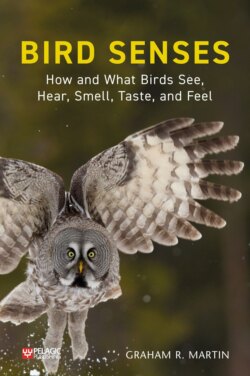Читать книгу Bird Senses - Graham R. Martin - Страница 19
На сайте Литреса книга снята с продажи.
Epicurus and Sextus
ОглавлениеIdeas about the challenges of understanding the sensory world of humans were first thought through and described by the Greek philosopher Epicurus (341–270 BCE). The writings of Epicurus, and the elaboration of his ideas by later philosophers, have given rise to the substantial body of thought known today as Epicureanism. Many prominent thinkers through to the present day have characterised themselves as Epicureans. Epicureanism has a number of key ideas, and prominent among them is being prepared to accept the limitations on the information that is available to guide actions.
Epicurus was among the first to write explicitly about the way that our senses place very real constraints on our overall understanding of the world. He was the first western philosopher–scientist to recognise that the information we receive changes from moment to moment. He also argued that information, even though it is concerned with the same object, is radically different depending upon the sense involved. What becomes recognised by us as a particular object is constructed from many different, and ever-changing, sources of information received from different sensory systems.
Some 500 years later, the Roman philosopher Sextus Empiricus (160–210 CE) took these human-focused ideas of Epicurus and saw their implications for all animals (Figure 2.1). Sextus argued that non-human animals are also constrained by the information that their senses provide and, crucially, that different animal species are constrained in different ways, so that they cannot possibly be living in identical worlds. This was probably Sextus’ most important insight. Today we have a wealth of scientific data to support such a notion.
FIGURE 2.1 The Greek philosopher Epicurus (left) and the Roman philosopher Sextus Empiricus (right). Their ideas laid the foundations for a comparative approach to studying the senses of animals. They viewed sensory capacities as linked to the environment in which an animal lives and to the tasks that it performs. Shaped by modern ideas about evolution, their approach to understanding the worlds of animals is manifest today in the science of sensory ecology. (Image of Sextus Empiricus from Wikimedia Commons, public domain.)
It might not have been unreasonable to surmise that while birds experience a different world to that of humans, all bird species experience the world in the same way. Thus, it would have been possible to explain that bird species exhibited different behaviours simply because of differences in their anatomy and bodily structures. That is, it was only because of the differences in their bills, wings, legs, etc. that birds behaved differently, not because of any differences in the information that they had about the world. Sextus argued that this was not the case, and that while species might share the same environment the information that they had about it was different.
Sextus argued that the anatomical and structural differences between species went hand-in-hand with differences in the information that each species received to control their behaviour. Having established this as a key idea, it can be seen that in essence sensory science, and especially sensory ecology, has for two millennia been filling in the details – an enterprise that has been boosted significantly by the evolutionary and ecological frameworks that emerged in the last 200 years.
Sextus’ insights and their role in the evolution of fundamental ideas about the world have been profound. This is because they lead to a quite unsettling position. They inevitably lead to the question of what the ‘real’ world might be like. Is there such a thing, or are there many different worlds depending upon the information available to particular species? It was questioning in this way that laid the foundations of Scepticism – the idea that we must neither accept any idea as true nor any idea as false, but we must always question. Scepticism is based upon the recognition of how difficult it is to be sure of the world when it can be based only on the information that the senses provide. Scepticism, in turn, led to Empiricism and the system of enquiry that underpins the modern scientific approach to understanding the world through experimentation and hypothesis testing.
